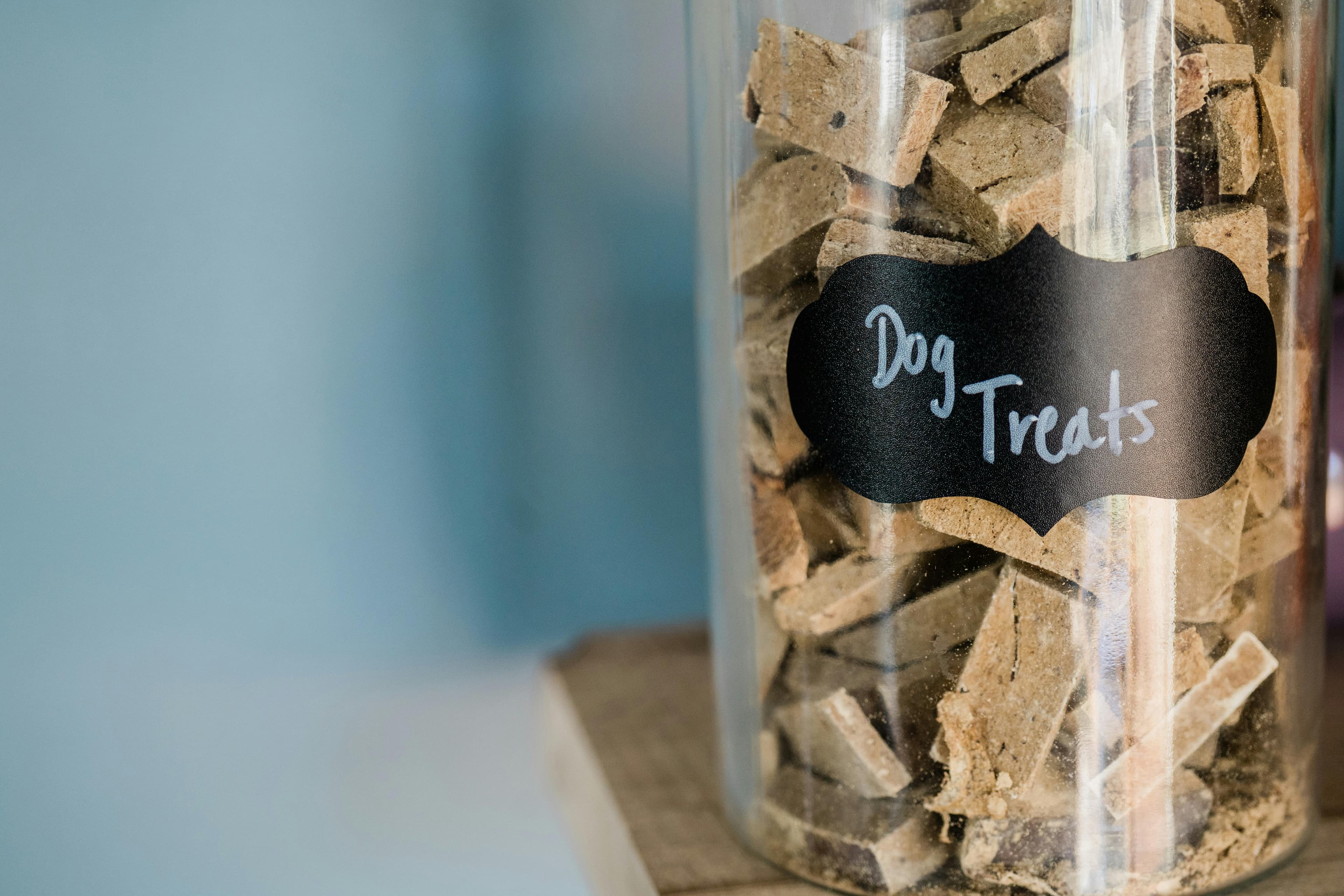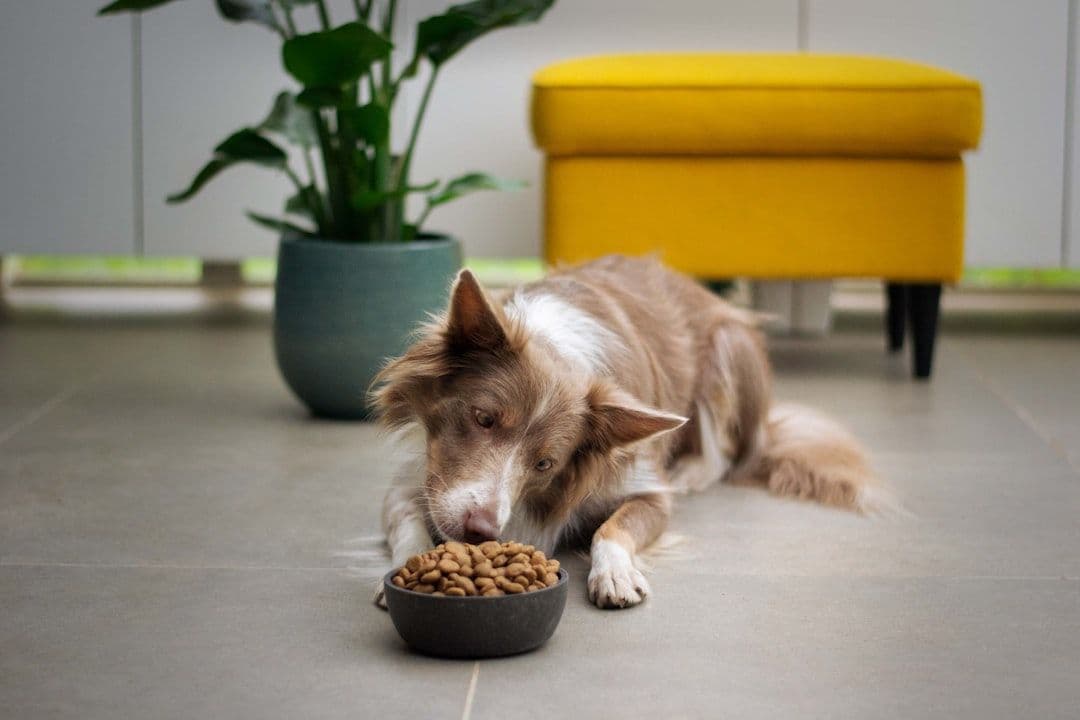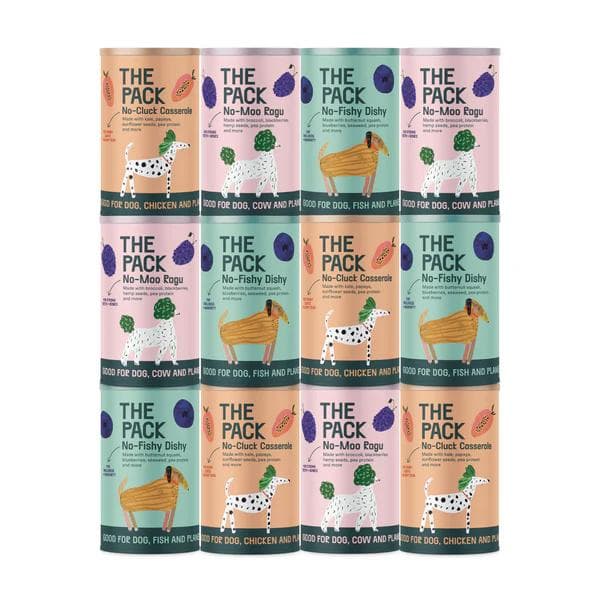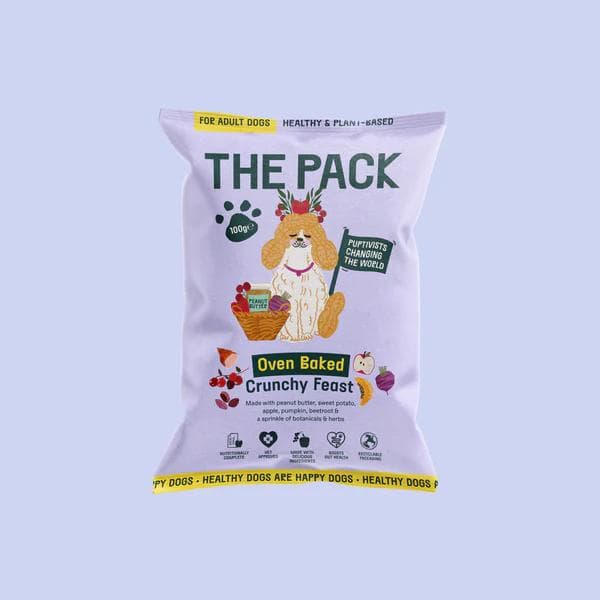Key Takeaways
Choosing the correct food for your dog at every stage of life will not only keep them healthy, but it will also give them more energy and help them live longer. This guide lists the dietary needs of dogs at different ages and gives you the information you need to make smart choices about lifestage dog food.
- Puppies need diets that are robust in energy and nutrients. DHA is important for brain development, calcium is important for healthy bones, and protein is important for quick growth and muscle development.
- Adult dogs do better when they eat a balanced diet that is meant to keep them healthy. Proteins, good fats, and carbs are the building blocks that provide you the energy you need to get through the day and keep your body working well.
- Older dogs require particular diets to keep their bodies healthy as they age. For example, they need lower-calorie meals to keep them from gaining weight, antioxidants to boost their immune systems, and glucosamine to keep their joints flexible.
- It is very important to slowly switch between different sorts of food. When switching diets at different stages of life, doing it over 7–10 days helps keep your gut healthy and lowers the risk of digestive problems. Vets4Pets recommends gradually switching your dog’s food over 10–14 days to avoid digestive upset.
- The size of a breed has a big effect on its nutritional needs. For example, bigger breeds frequently need controlled calcium to keep their joints healthy, while little breeds need dense nourishment to keep up with their quick metabolisms.
- Giving your dog food that is appropriate for their age is directly related to better digestion, more energy, and a longer life by meeting their developmental needs.
- Getting your vet involved is very important for good nutrition. Professional assistance makes sure that your dog's food plans are right for their age, breed, size, and any health issues they may have.
- Generic diets that work for everyone don't give the best care that lifestage-specific formulae can. This means that personalised nutrition is necessary for better health and a longer life.
Introduction
It's not just a matter of taste or convenience when it comes to picking the correct food for your dog; it's an important investment in their health and happiness. As dogs get older and grow, their bodies go through a lot of changes, just like ours do. Each stage of life brings new health and nutritional needs. By meeting these demands with dog food that is made for each stage of life, you provide your dog the tools to flourish, stay active, and live longer.
From puppies that are full of energy and need to grow quickly to adults that want to stay healthy and senior dogs that are becoming older gracefully, certain nutrients like protein, DHA, and antioxidants are important at every stage. A personalised feeding plan makes sure your dog receives what they need when they need it, which lowers the risk of common health problems and boosts their energy at every stage of life.
Let's look at how lifestage nutrition helps every wag of the tail, from puppyhood to the golden years.
Learning about Lifestage Dog Food
The idea behind lifestage dog food is that a dog's nutritional demands change a lot as they get older, become more active, and their metabolism speeds up. These specialised diets are different from generic all-life-stages formulas because they meet the specific needs and challenges of each stage of life, from the growth spurts of puppyhood to the lower energy needs of old age.
For example, a puppy that is growing needs almost twice as many calories per pound of body weight as an adult dog. This stage also needs important nutrients like DHA for brain growth and the right amount of calcium and phosphorus for bone building. An adult dog, on the other hand, does best on a balanced diet that focusses on maintenance. This means getting the proper amount of protein, fats, and carbohydrates to keep them energised and active every day. Senior dogs need a different kind of care that focusses on making food easier to digest, keeping their joints healthy, and lowering their calorie intake to help them age well.
There is a lot of research that shows how much better age-specific feeding is than general formulas that work for all life stages. By matching the food's nutritional value to a dog's life cycle, you can greatly lower the risk of common health concerns like obesity, joint pain, and digestive troubles.
What Puppies Need to Eat
Puppies grow very quickly, especially in the first six months, and they need a carefully balanced diet to do so. Puppies need food that is high in nutrients to help their muscles grow, their bones strengthen, and their energy needs. Their calorie needs are two to three times more than those of adult dogs.
According to The Kennel Club, calcium balanced with phosphorus is critical for healthy puppy skeletal development.
- Protein: Puppies need at least 22% protein (on a dry matter basis) to help their muscles grow strong and their bodies work properly. Chicken, lamb, and fish are all good sources of protein that give your body the amino acids it needs.
- Fats and DHA: Healthy fats, especially omega-3 fatty acids like DHA, are very important for the growth of the brain and eyes.
- Calcium and Phosphorus: These nutrients are very important for strong bone growth, especially in large breeds where an imbalance might cause orthopaedic problems.
How to Feed
Because puppies have fast metabolisms, they do best when they eat little meals often. At first, give them 4 to 6 meals a day, and then cut back to 2 meals a day when they are adults. The size of the breed affects when they can start eating adult food. Small breeds can switch at 9 to 12 months, medium breeds at 12 to 15 months, and large breeds at 24 months.
What Adult Dogs Need to Eat
Once your dog stops being a puppy, their diet and calorie needs change to focus on keeping a healthy weight and supporting their overall health. When you feed adult dogs, you have to find the right amount of protein, carbs, and fats for their level of activity.
Protein that is easy to digest, like rice or oats, is still important for keeping muscles strong, and carbs that are easy to digest, like rice or oats, help release energy over time. Micronutrients meet the body's daily needs for maximum operation, while healthy fats keep the skin and coat healthy.
How often to feed
Most adult dogs do best when they eat two meals a day. They stay in great shape by keeping an eye on their weight and controlling their portions. Change how many calories your dog eats dependent on how much they move. For example, dogs that work or are very active may need more calories than dogs that are less active.
Things to think about when feeding an older dog
As your dog gets older, their metabolism, intestinal health, and mobility will vary, so you'll need to make more changes to their diet. Senior formulas are made to help with these problems, which will help you have a better life in your older years.
The PDSA emphasises that senior dog diets should support joint health, be more digestible, and help maintain a healthy weight for ageing pets.
Important Dietary Needs
- Joint Health: Omega-3 fatty acids, chondroitin, and glucosamine are some of the nutrients that help keep joints healthy by lowering inflammation and keeping them working properly.
- Digestibility: Older dogs perform best with food that is easy to digest and has probiotics and prebiotics added to help their digestive health.
- Caloric Control: Less calories keep seniors from gaining weight, while protein keeps their muscles strong.
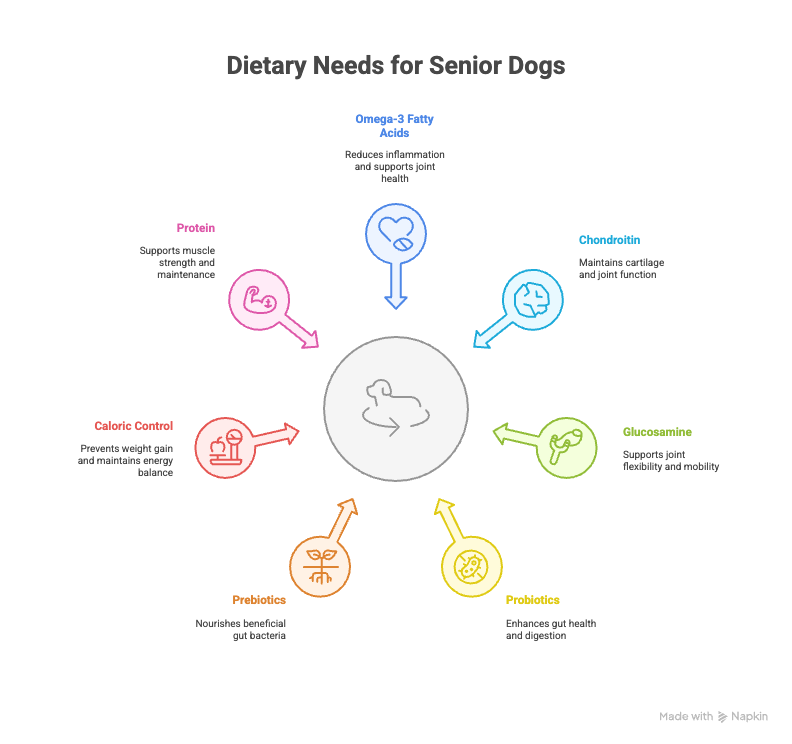
Giving Seniors Food
Seniors should also stick to a regular schedule of 1–2 meals a day, just like adults. Keeping an eye on their weight and talking to a vet about changes makes ensuring their nutritional needs are addressed as their activity levels and appetites vary.
Conclusion
Lifestage dog food is more than just food; it's a way to take care of your dog's health and well-being. These specialised diets are better than generic ones because they meet the specific nutritional needs of puppies, adults, and senior dogs.
Tailoring your dog's diet to their stage of life will make sure they live their happiest, healthiest life. For example, puppies need a diet that helps them grow, adults need a diet that helps them stay healthy and have energy, and seniors need a diet that helps them deal with the special problems of ageing. You provide your dog the finest care possible at every stage by talking to your vet, changing their diet carefully, and focussing on good nutrition.
In the end, lifestage nutrition isn't simply a way to feed your pet; it's a way to make sure they stay healthy and happy for a long time. Put it first, and your dog will do well at every stage of their life.


